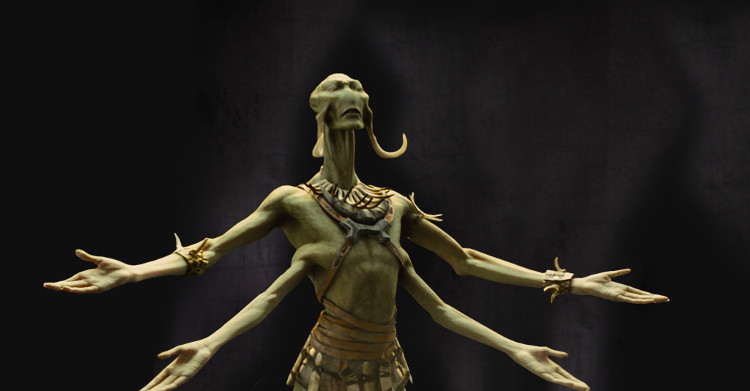What will people on Mars look like?
Very likely in the future, Mars will be the new human planet. But with such harsh conditions, people will need to evolve to adapt. So how will that evolution take place?
Mars may be the best place to ensure human existence in the future. But it is a place with very harsh living conditions, so the human body will need completely new changes to adapt to the environment. And the following video will show you the details of those changes.
When it comes to finding a new planet to live in, Mars is the best choice for humanity.
But this journey will be different, will no longer be geological surveys that pioneering astronauts like Ferdinand Magellan, Yuri Alekseyevich Gagarin and Neil Armstrong have done in the past, but are tough challenges. more.
Setting foot on Mars will no longer simply learn how to survive on an alien planet with less oxygen, weaker gravity and radiation rays stronger than the Earth, but to suffer Modify the body to adapt to this new environment, and imagine how those changes will take place.
Even astronauts realize that you don't take too long to notice the changes. The weaker gravitational force will lead to a series of physical changes. A former NASA astronaut, he, who lived for a year on the International Space Station, said that the zero gravity environment in space weakened his bones and muscles, but also made it The gap between the vertebrae widened, making him 2 inches taller than the original.
Although the zero gravity environment in the space is somewhat more harsh than Mars, the changes will still occur, at a lower level. In particular, those low-level changes will last for hundreds of years and dozens of generations, in the long run, maybe those changes are no longer low.
Basically, people will have two ways to adapt to the conditions of Mars.
In the first few centuries, our bones and muscles will shrink, and this will inevitably lead to shorter life rhythms and health complications, including neurological disorders if the skull is contracted. than the rest of the body.
So in order to survive, we can undergo counter-reactions, grow stronger than originally, like the character of Tharks in Edgar Rice's "A Princess of Mars" sci-fi novel. Burroughs "has a total of 4 hands, 2 legs and green skin".

We will have a new skin color that is orange and not green.
In fact, scientists think we will have a new skin color that is orange and not green . Because carotenoids make carrots, sweet potatoes, and orange pumpkins that help fight harmful radiation and ultraviolet rays. So it is possible, to evolve skin that is adapted to Mars's harmful radiation rays, human skin will be supplemented with carotenoids to turn orange.
So really, how big is the radiation on this planet? For example, the Earth averages about 3 millisievert of radiation per year in Mars, which is 10 times more, and this means that the likelihood of getting cancer in humans will increase significantly compared to the Left Land. And it is estimated that a person who lives a lifetime on Mars will have to receive about 5,000 times more radiation than a person living on Earth.
And our large orange body may not only be different on the outside, but also on the inside, the cause of the human being, the DNA set.
Higher levels of radiation at the surface of Mars will transform human DNA quickly. Normally, a species like homo sapiens will take several hundred thousand years to evolve on Earth, but if it were in Mars it would be different, scientists have calculated that higher mutations are Can create new individuals within centuries - 10 times faster than Earth.
So, if radiation doesn't completely kill us, survival mutations will be passed down through generations, and eventually, they will diversify genomes and not only humans, other individuals. Nature's will be no exception, imagine, when all the weird creatures you've ever seen on fictional movies are standing in front of you.
However, this is not very good because the studies show that only closely related species can reproduce. So if people evolve in different forms, does reproduction exist?
Moving to Mars can be the best opportunity for human survival. But in the end, most likely things that exist on Mars, will no longer be human.
- 706 people won 4 tickets to Mars
- More than 78,000 people registered on Mars not back
- There is 1 Vietnamese in the list of 100 people selected on Mars
- 100,000 people registered on Mars
- People who survive on Mars can evolve into new species
- Why hasn't NASA brought people to Mars?
- Start selling 'one-way tickets to Mars'
- Selected 100 people to Mars, live and do not return
- Settling on Mars: Make water and oxygen
- What do people prepare for the work of taking people to Mars?
- More than 200,000 people want to settle in Mars
- People will become pregnant, give birth and create a new human species on Mars?
 Announced 3 houses on the Moon and Mars
Announced 3 houses on the Moon and Mars Science proves: Mars also knows 'deflated'
Science proves: Mars also knows 'deflated' Elon Musk announced the price for a Mars trip was 11.6 billion VND, free of charge
Elon Musk announced the price for a Mars trip was 11.6 billion VND, free of charge NASA discovered strange 'gate' on Mars, is the hiding place found?
NASA discovered strange 'gate' on Mars, is the hiding place found?